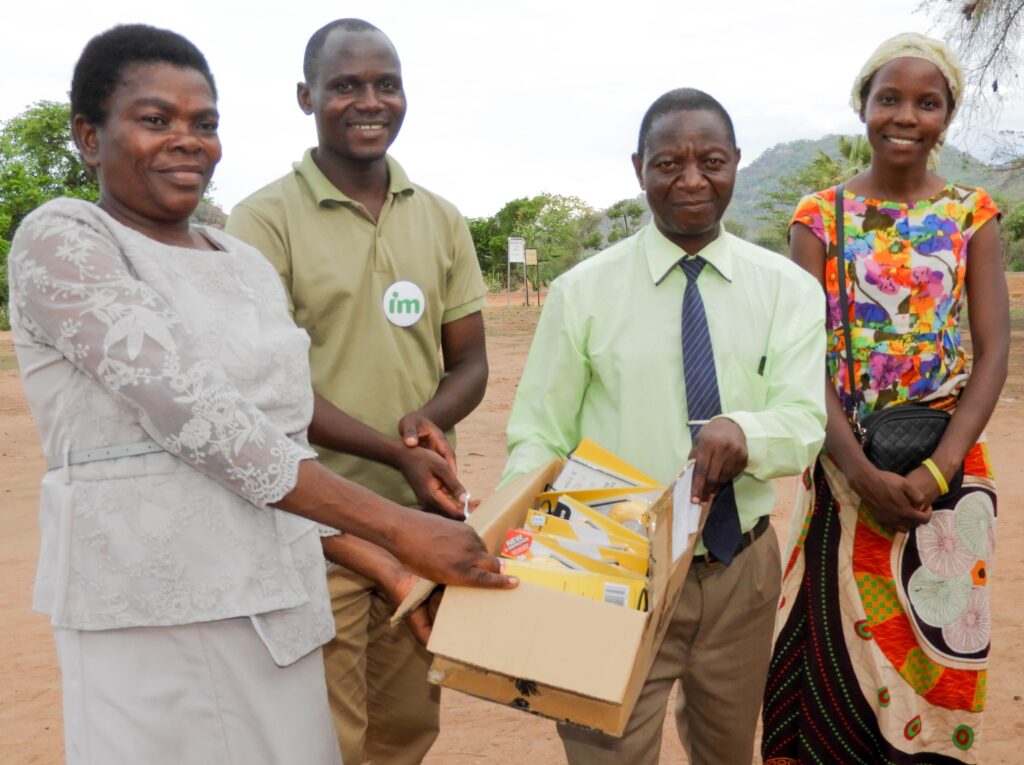Listening to teachers of Chilumba Primary School share how solar lamps have become an effective tool to improve girls’ education at the school, one is compelled to appreciate the significance of using safe, renewable, and environmentally friendly lighting for improving educational opportunities, health, savings, welfare, safety and the environment.
Many learners of Chilumba Primary School living in this rural Mangochi district’s area of Traditional Authority Nankumba do not have electricity and study at night using kerosene lanterns and open-flame candles.Apart from the on-going high fuel costs for these lanterns depleting scarce family resources,the smoke from these light sources is unsafe and hazardous to their health as well as a its flames become a fire hazard that have resulted in the unfortunate loss of life and property.
Centre for Youth Empowerment and Civic Education(CYECE) under the IM-funded Rise Up, Speak Out and Act Against Child Marriage(RISA) project is helping to promote girls education by, among others, providing safe, renewable, solar-powered lights to eight target schools in the district. The learners now boast of being able to read and study safely at night – with no risk to their health and lives increasing the amount of time girl-learners in the school have to study after sundown and also enhance their security at night.
In order to ensure that girls are supported to remain in school and complete their basic and secondary education, CYECE, with funding from the IM Swedish Development Partner runs School Solar Lamps Library Initiative in8 targeted schools under the RISAproject. Each school was provided with twenty portable solar lamps during the 2020/2021 school calendar including Chilumba Primary School. The lamps are solar-powered and can be charged with solar energy when the beneficiaries can easily recharge them by placing them outside their shelters.
Six out of the eight targeted schools arranged a girls’ boarding initiative during a period nearing the standard (grade) 8 learners’ sitting for their primary educational level final examinations – Primary School Leaving Certificate of Education. Several teachers in those schools took collective responsibility to help the girl-students to achieve their academic excellence through increased night learning and study time using the solar-powered lights.
Chilumba Primary School is one of the four schools that had an impressive girls’ performance at the end of the academic calendar as expressed by Mr. Fletcher Jilani, the Deputy Head Teacher of Chilumba Primary School: “This academic calender, all the 8 girls that sat for the examinations passed at this school compared to only 4 recorded in the previous academic calendar. We no doubt attribute this success to have been contributed by extended studying time with the solar lamps.” says.
Without an education, girls have fewer opportunities in their future and like any other person, the girls need an environment where they can be safe to fully reach their potential.
“My life is no longer what it was earlier,” says Elinat who was selected from the rural Chilumba Primary School to further her education at Mangochi Secondary School. “I have tasted excellence for the first time in my life,” she continues. Through in-school Girls’ Empowerment Clubs, the girls are sensitized on how solar energy reduces climate changing carbon emissions and this knowledge has informed their efforts against this and other climate smart malpractices like use of kerosene lamps, wantonly cutting down of trees and use of chemical fertilizers in their communities for the purposes of gradually reducing emitted carbon dioxide fumes, prevent indoor air pollution that affects people’s health and other environmental and climate hazards.

